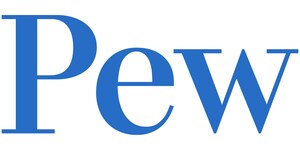Pew Supports 10 Latin American Scientists Advancing Biomedical Discovery
PHILADELPHIA, June 15, 2020 /PRNewswire/ -- The Pew Charitable Trusts today announced the 2020 class members of the Pew Latin American Fellows Program in the Biomedical Sciences.
The 10 postdoctoral fellows from seven Latin American countries—Argentina, Brazil, Chile, Colombia, Guatemala, Mexico, and Peru—will receive two years of funding to conduct research in laboratories across the United States, where they will work under the mentorship of prominent biomedical scientists, including members of the Pew Scholars Program in the Biomedical Sciences and the Pew-Stewart Scholars Program for Cancer Research.
"The pursuit of scientific discovery calls for diverse perspectives from around the world," said Rebecca W. Rimel, Pew's president and CEO. "Pew is thrilled to welcome these promising Latin American fellows to our global network of researchers as they explore new frontiers in biomedical science."
Fellows who choose to return to Latin America to launch their own research labs will receive additional funding from Pew. Approximately 70 percent of participants have pursued this path, to contribute to the development of a more robust biomedical research community in Latin America.
Research interests in the 2020 class include how leukemia stem cells evade detection by the immune system, how the influenza virus can increase susceptibility to secondary bacterial pneumonia, and how the human immunodeficiency virus (HIV) can hide quietly inside host cells.
"The 2020 class of fellows brings a global perspective that will help advance biomedical discovery," said Eva Nogales, Ph.D., professor in the department of biochemistry, biophysics, and structural biology at the University of California, Berkeley, and chair of the Pew program's national advisory committee. "By collaborating with investigators in the United States and Latin America, these rising talents benefit scientific progress in both regions."
The 2020 Pew Latin American fellows and their U.S. mentors are:
Juan Carlos Balandrán, Ph.D.
Laboratory of Paul Frenette, M.D.
Albert Einstein College of Medicine
Dr. Balandrán will explore how leukemia stem cells evade detection by the immune system.
Gabriel Lozano Betancourt, Ph.D.
Laboratory of Seth Rakoff-Nahoum, M.D., Ph.D., 2018 Pew biomedical scholar
Boston Children's Hospital
Dr. Betancourt will explore the mechanisms that allow an animal host to monitor the quality of its diet and the function of its microbiome.
Eunice Domínguez Martín, Ph.D.
Laboratory of Richard Youle, Ph.D.
National Institute of Neurological Disorders and Stroke, National Institutes of Health
Dr. Domínguez Martín will investigate the molecular mechanisms underlying the relationship between mitochondria and the body's innate immune response.
Fabián Morales Polanco, Ph.D.
Laboratory of Judith Frydman, Ph.D.
Stanford University
Dr. Morales Polanco will explore whether proteins assemble into multiprotein complexes as they are being synthesized.
Luisa Maria Nieto Ramirez, Ph.D.
Laboratory of Tim van Opijnen, Ph.D.
Boston College
Dr. Nieto Ramirez will examine how the immune system recognizes and eliminates the pneumonia-causing microbe Streptococcus pneumoniae.
Luciana Pádua Tavares, Ph.D.
Laboratory of Bruce Levy, M.D.
Brigham and Women's Hospital and Harvard University
Dr. Tavares will probe how infection with the influenza virus can increase susceptibility to secondary bacterial pneumonia.
Jeffrey Roberto Reina Garciasalas, Ph.D.
Laboratory of Tony Hunter, Ph.D.
Salk Institute for Biological Studies
Dr. Reina Garciasalas will explore whether breast cancers show altered patterns of histidine phosphorylation.
Estefanía Sánchez Vásquez, Ph.D.
Laboratory of Magdalena Zernicka-Goetz, Ph.D.
California Institute of Technology
Dr. Sánchez Vásquez will investigate the fate of cells harboring abnormal chromosomes and how they interact with normal cells during early mammalian development.
Gustavo Vasen, Ph.D.
Laboratory of Leor Weinberger, Ph.D., 2008 Pew biomedical scholar
Gladstone Institutes
Dr. Vasen will investigate how the human immunodeficiency virus (HIV) can hide quietly inside host cells, emerging when conditions are most favorable.
Miguel Villavicencio Camarillo, Ph.D.
Laboratory of Charles Zuker, Ph.D., 1988 Pew biomedical scholar
Columbia University
Dr. Villavicencio will identify the brain circuits underlying our insatiable appetite for sugar.
The Pew Charitable Trusts is driven by the power of knowledge to solve today's most challenging problems. Learn more at pewtrusts.org.
Erin Davis, 202-540-6677, [email protected]
SOURCE The Pew Charitable Trusts

Related Links
WANT YOUR COMPANY'S NEWS FEATURED ON PRNEWSWIRE.COM?
Newsrooms &
Influencers
Digital Media
Outlets
Journalists
Opted In





Share this article